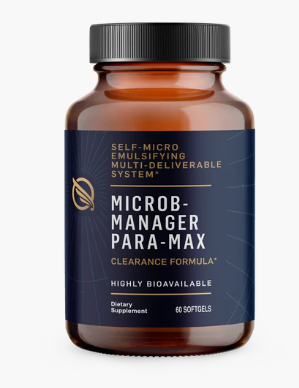Pesticide Poisoning Treatment
Have you been experiencing unusual symptoms after being around pesticides? While designed to eliminate pests, these chemicals can also pose risks to human health, leading to various symptoms and complications. If you suspect you may be suffering from pesticide poisoning, it’s essential to seek professional guidance and support. At Five Journeys, we offer a comprehensive approach to pesticide poisoning treatment, combining conventional and natural therapies to help you alleviate symptoms, detoxify your body, and restore your well-being. We understand the challenges of pesticide exposure and are here to guide you on your path to recovery.
Key Takeaways
- Pesticide poisoning results from exposure to toxic chemicals through inhalation, skin contact, or ingestion, and can cause symptoms affecting the nervous, respiratory, skin, and ocular systems, even at low doses.
- Common symptoms include headaches, confusion, dizziness, poor coordination, coughing, rashes, blurred vision, and, in severe cases, seizures or neurological complications.
- Early treatment is essential to prevent serious outcomes such as allergic reactions, neurological damage, chronic illnesses, and respiratory complications, especially in those with pre-existing conditions.
- Prevention is key, limit pesticide use, wear protective gear, follow label instructions, store chemicals safely, and decontaminate skin or clothing immediately after exposure.
- Self-care and detox support can include hydration, rest, topical skin remedies, and dietary strategies that support your body’s natural healing and detox pathways.
What is Pesticide Poisoning?
Pesticide poisoning occurs when exposed to and harmed by chemicals intended to control pests. These chemicals can enter your body through various routes, including inhalation, skin contact, and ingestion. The severity of pesticide poisoning can vary significantly depending on the type of pesticide, the level of exposure, and individual factors such as age and overall health. Pesticide poisoning is a global public health concern, and understanding the different types of pesticides and their potential effects is crucial for effective prevention and treatment. Research indicates that pesticide poisoning remains an important concern, and understanding the different types of pesticides and their potential effects is crucial for effective prevention and treatment.
Pesticide Exposure Symptoms
Pesticide exposure can lead to a range of symptoms, which often develop gradually. It’s crucial to be mindful of any changes in your body and seek medical advice if you suspect you may have pesticide poisoning. Research shows that even low-level exposure to pesticides can have neurological consequences, including changes in neurobehavioral performance and an increased risk of Parkinson’s disease.
Neurological Symptoms
Pesticides can affect the nervous system, leading to neurological symptoms such as:
- Headaches
- Dizziness
- Confusion
- Poor coordination or balance
- Tremors
- Memory problems
- Difficulty concentrating
In severe cases, pesticide poisoning can cause seizures, coma, or other neurological complications.
Respiratory Symptoms
If you’ve inhaled pesticides, you may experience respiratory symptoms such as:
- Difficulty breathing
- Coughing or wheezing
- Nasal or throat irritation
These symptoms can be particularly concerning if you have pre-existing respiratory conditions like asthma or COPD.
Skin Symptoms
Skin contact with pesticides can cause various skin symptoms, including:
- Rash or redness
- Burning or itching sensation
- Blisters or hives
These symptoms may be localized to the area of contact or may spread to other parts of the body.
Eye Symptoms
Pesticide exposure can also irritate the eyes, leading to:
- Redness or irritation
- Tearing or watery eyes
- Blurred vision
These symptoms can be particularly bothersome and may interfere with daily activities.
Interested in Pesticide Poisoning Treatment? Ask your provider or book a call with us!
Why is Early Pesticide Allergy Treatment Important?
Addressing pesticide exposure promptly protects your health and prevents potential complications. Early intervention can help mitigate the neurological effects of pesticide exposure. Here are some of the benefits of early intervention:
Prevention of Severe Reactions
In some cases, pesticide exposure can lead to severe allergic reactions, including anaphylaxis, a life-threatening condition. Early pesticide allergy treatment can help manage these reactions and prevent serious complications.
Minimizing Chronic Health Issues
Long-term exposure to pesticides has been linked to various chronic health issues, including neurological disorders, respiratory problems, and certain types of cancer. Early intervention and pesticide poisoning treatment can help minimize the risk of these long-term health problems.
Protecting Neurological Health
Pesticide exposure is associated with neurological symptoms, changes in neurobehavioral performance, and an increased risk of Parkinson’s disease. Early assessment and intervention can help protect your neurological health and potentially reduce the long-term risks.
Protecting Respiratory Health
Pesticide exposure can significantly impact respiratory health, especially for individuals with pre-existing respiratory conditions. Early treatment can help protect your respiratory system and prevent complications like pneumonia or bronchitis.
Avoidance of Secondary Infections
Skin irritation or damage caused by pesticide exposure can increase the risk of secondary infections. Early intervention and proper wound care can help prevent these infections and promote healing.
Self-Care Recommendations
While medical treatment is essential for managing pesticide poisoning, certain self-care practices can also support your recovery:
- Decontamination: If you’ve had skin or eye contact with pesticides, immediately remove contaminated clothing and wash the affected area thoroughly with soap and water.
- Hydration: Drink plenty of water to help flush out toxins from your body.
- Rest: Get adequate rest to support your body’s natural healing processes.
How to Prevent Future Pesticide Poisoning
Prevention is always better than cure. Here are some steps you can take to reduce your risk of future pesticide exposure:
- Minimize Pesticide Use: Explore alternative pest control methods that minimize or eliminate the use of pesticides.
- Protective Measures: If you must use pesticides, wear protective clothing, including gloves, long sleeves, and a mask, to minimize skin and inhalation exposure.
- Proper Storage: Store pesticides safely out of reach of children and pets.
- Follow Instructions: Always follow the instructions on pesticide labels carefully.
Natural Ways for Pesticide Allergy Cure
Many people seek natural ways to manage pesticide allergy treatment and support their bodies’ detoxification processes. While conventional medical treatment may be necessary in some cases, certain natural therapies may offer additional support. At Five Journeys, we explore various options, including:
- Herbal remedies: Certain herbs and supplements have been traditionally used to support detoxification and alleviate allergy symptoms.
- Nutritional support: Optimizing your diet and addressing any nutritional deficiencies can help support your body’s natural detoxification pathways.
- Topical treatments: Natural topical remedies can help soothe skin irritation and promote healing.
It’s important to note that natural therapies should be used in conjunction with, not as a replacement for, conventional medical treatment when necessary. Our team will work with you to develop a personalized plan that combines the best of both worlds.
Why Choose Five Journeys?
At Five Journeys, we understand the complexities of pesticide poisoning and pesticide allergy treatment. Our team of experienced practitioners is dedicated to providing compassionate, individualized care that empowers you to take control of your health. Here’s why you should consider partnering with us on your journey to wellness:
Holistic Approach
At Five Journeys, we recognize that true wellness encompasses more than just physical health. We take a holistic approach that considers all aspects of your well-being, including physical, emotional, mental, and spiritual health.
Personalized Care
We understand that each individual is unique, and their health needs are different. That's why we tailor our services to meet your specific needs and goals. Whether you're seeking preventive care, managing chronic conditions, or optimizing your overall health, we provide personalized solutions that prioritize your well-being.
Insurance Accepted
If you’re seeking pesticide poisoning treatment or pesticide allergy treatment, Five Journeys offers a unique and supportive approach. We believe in the power of combining conventional medicine with natural therapies to help you achieve optimal health and well-being. Don’t let pesticide poisoning hold you back any longer. Schedule a consultation in Boston and Newton today and discover how we can help you reclaim your vitality and live your best life.
*Massachusetts law does not allow us to accept MassHealth & Medicaid. Other exceptions may apply.
References
- Calvert, G. M., Karnik, J., Mehler, L., Beckman, J., Morrissey, B., Sievert, J., … & Moraga-McHaley, S. (2008). Acute pesticide poisoning among agricultural workers in the United States, 1998-2005. American Journal of Industrial Medicine, 51(12), 883-898. https://doi.org/10.1002/ajim.20623
- Goel, A., & Aggarwal, P. (2007). Pesticide poisoning. National Medical Journal of India, 20(4), 182-191. https://www.researchgate.net/profile/Praveen-Aggarwal-3/publication/5763862_Pesticide_poisoning/links/0046353034f4e77246000000/Pesticide-poisoning.pdf
- Kamel, F., & Hoppin, J. A. (2004). Association of pesticide exposure with neurologic dysfunction and disease. Environmental Health Perspectives, 112(9), 950-958. Retrieved at https://doi.org/10.1289/ehp.7135
Why we do, What we do...






























